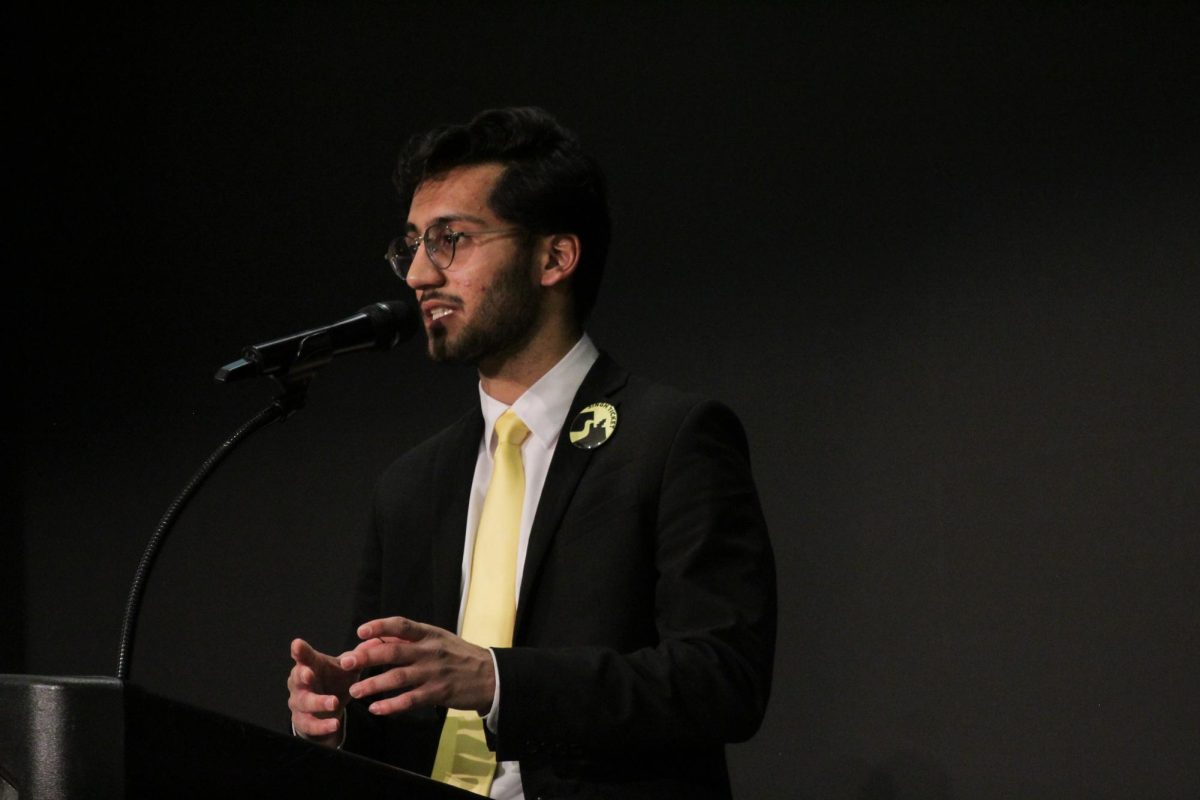A bill that would have brought significant changes to ASUU’s executive cabinet (ECAB) was the subject of intense internal scrutiny from ASUU legislators, senators and appointed officers this week.
The original version of bill JB20, which was authored by current president-elect Sunny Singh and Chief of Staff Milan Subotic, would have reduced the size of ECAB from its current size of about 55 students plus 30 First Year Council mentees to 34 students and 20 FYC mentees. The bill was co-sponsored by Alex Rose, senator for Undergraduate Studies and a candidate in the 2025 ASUU Elections.
Singh’s proposed bill argued that the size and linear structure of ECAB, where all executive boards report to the president and chief of staff, makes it hard to track boards’ productivity. As such, the boards become “unaccountable to both the ASUU presidency and the legislative chambers,” according to the bill.
To address this, the original bill would have merged several executive boards, reducing the number of boards from nine to five, and create a First Year Cohort to replace the FYC. It also included the creation of clear outlines and expectations for positions in ECAB and ridding the cabinet of redundant positions.
However, the bill was allegedly extremely unpopular within ASUU.
Completed sections of a letter authored by Senator Jack VanDerHeyden against the bill were shared with The Daily Utah Chronicle in an email earlier this week.
“This bill is proposed with the stated aims to increase accountability, create a more fair distribution of work, and facilitate easier management of the Executive Branch, all to increase the quality of output by the ASUU Government; but, we believe it will have the opposite effect,” the letter reads.
The letter pointed to concerns that the restructured ECAB would limit ASUU’s advocacy power, “cripple” ECAB’s power to provide valuable experiences to students and restrict opportunities for first-year students to get involved with ASUU.
“This restructure project was rushed and failed to truly, faithfully and genuinely gather insights and feedback from current ASUU leadership,” the letter reads.
But before the letter could finish circulating and collecting signatories, Subotic allegedly asked Singh to withdraw his sponsorship.
“The Chief of Staff asked Sunny to withdraw his sponsorship and scrapped the original bill after further reflection and coming to the conclusion that Sunny had coopted his vision for a restructured executive cabinet where they ended up having different understandings of issues within the executive cabinet and different approaches on how to solve those issues,” an ASUU assembly representative, who asked to remain anonymous, shared over email.
Singh said over email he wrote a similar bill last year under President Jack O’Leary.
“The ECAB restructure bill I wrote and proposed last year, along with then-President Jack O’ Leary passed Senate with flying colors and sizeable support,” Singh wrote. “Instead of downsizing ECAB, it provided for more positions, like another Chief of Staff. It is worth noting that it had the same whereas clauses that the current ECAB restructure bill had when I was the sponsor.”
However, he said that bill was pulled by O’Leary before it was presented to the Assembly after receiving feedback from full-time advisors and university administration.
When approaching JB20, Singh said he took into account his experience at the Associate Director of Finance under the O’Leary Administration.
After Singh’s sponsorship withdrawal, Subotic wrote a second version of the bill to address many of the concerns raised with the first.
“I believe [JB20] is an excellent example of students and leaders within ASUU expressing concerns about the impacts of the potential bill, and compromise being reached to address those concerns,” Subotic said over email. “Over the past few weeks, over 50 individuals have been given the opportunity to comment on the bill and many of its important changes.”
Subotic pointed to specific changes this bill makes, including expanding the role of the Sustainability Board, expanding the role and size of the Student Immersion Board, streamlining ECAB’s chain of command and creating requirements for engaging certain groups on campus that have “traditionally been forgotten by ASUU,” like graduate students.
This bill also reduces the number of ASUU executive boards from nine to six and adjusts the cabinet members’ compensation in the same way it was proposed in the original bill.
“While we understand that it may not be perfect, we believe that it does a much better job at shifting ASUU’s resources to areas of priority, increases institutional accountability from the top down, and promotes student engagement all throughout,” Subotic wrote.
The revised bill is sponsored by Subotic and Rose, along with Nathaniel Farishild, a representative for the College of Engineering. It’s expected to be heard tonight during ASUU’s 6 p.m. meeting.



